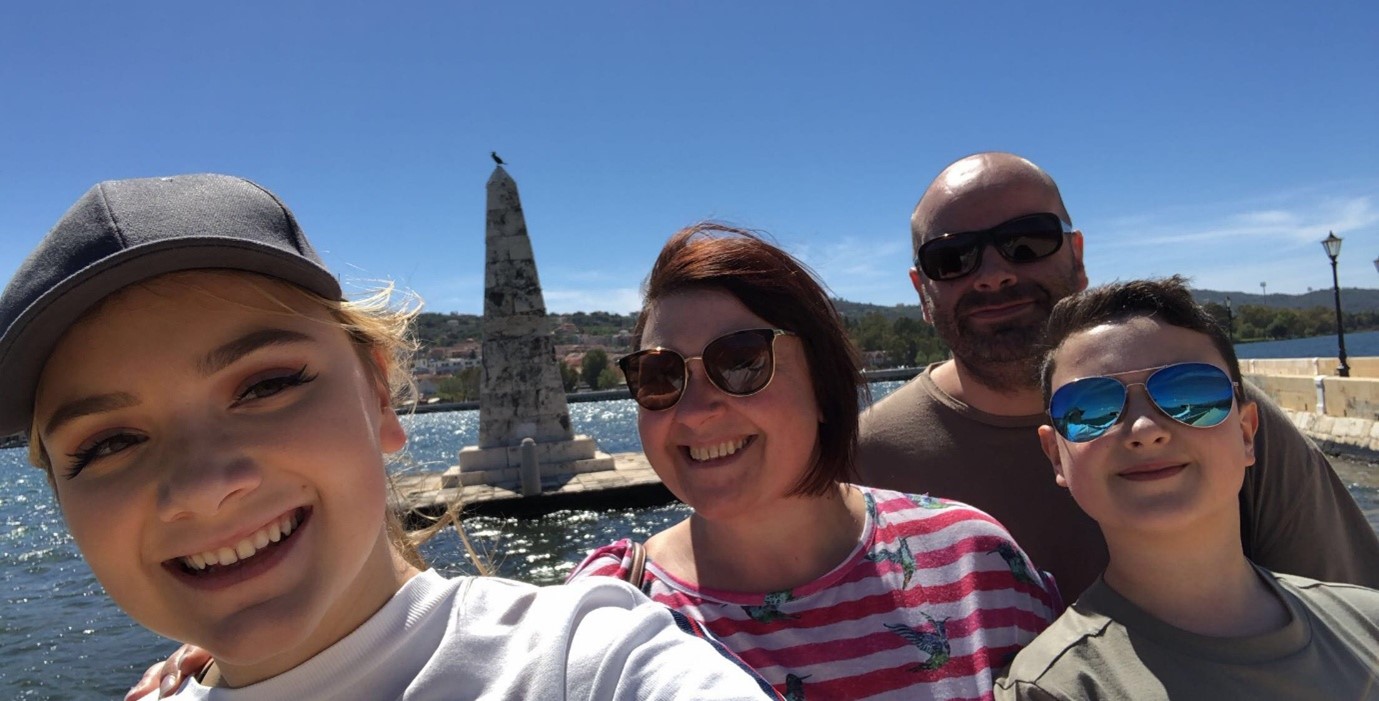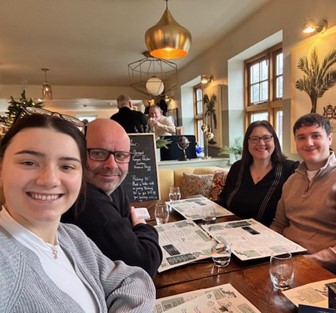We didn't have type 1 diabetes in the family and originally, I didn't really know much about it - just that it meant you needed insulin.
Then, my son Joe was diagnosed in 2017, when he was 13. He was very unwell in diabetic ketoacidosis (DKA) and ended up in the high dependency unit. That was our crash-course introduction to type 1 diabetes.
After that, we were invited to take part in a regional research study, which was studying family members of people with type 1 diabetes. My husband, our daughter Jaz and I all took part. We had a blood test that looked for type 1 diabetes autoantibodies. These are early indicators that type 1 has started to develop. We were happy to do anything that would help researchers understand the condition more.
That's how we found out that Jaz had type 1 diabetes autoantibodies. She'd just turned 16.
The research nurse who told Jaz was really kind, but it wasn't clearly explained what having these autoantibodies meant for her future risk of type 1. And there was no real follow-up from there. It felt like we'd been handed a really big piece of information and then left to get on with it.
Over time, we've learned more. I now know Jaz is in stage 2 of early type 1 diabetes. This means she has multiple autoantibodies and doesn't have high blood sugar levels. But it's very likely she'll go on to ‘fully' develop type 1 diabetes at some point.

The lack of information and support available to us at the time motivated me to later get involved with the UK Islet Autoantibody Registry. I'm part of the project team, and can bring my dual perspective of having a child who was diagnosed late and very unwell in DKA, and a child whose risk has been identified much earlier. So, I can see both the benefits and the challenges of early detection.
The Registry will give researchers the data they need to be able to understand more about the development of type 1 diabetes. And to explore the best ways to support people at risk psychologically and to create a proper care pathway for them. For families like ours, it will be a place to go for trusted information and peer support. Crucially, it will also be a place to find out about opportunities to take parts in trials of new treatments – ones that could keep holding off the full development of type 1 diabetes for as long as possible.
With studies like ELSA now screening more widely for autoantibodies, there's going to be more people identified in the early stages of type 1 diabetes. So, the Registry will be hugely beneficial.
It's been 8 years now since we learnt that Jaz was autoantibody positive. For Jaz, knowing her risk hasn't taken over her life, but it's always there - which does bring a bit of anxiety.
When she feels unwell, it's in the back of her mind because were told that illness could trigger her type 1. When she's unwell she sometimes asks to use her brother's glucose meter so she can check her glucose levels. It has been frustrating at times because there's such little awareness of this early stage of type 1 diabetes in healthcare. Jaz often has to explain everything herself to her GP.
That's why having support, information, and care pathways matters - and why the Registry will make such a difference.
But the first step is knowing. And I would say to any other family: yes, it's hard, but knowledge is power. Jaz would say the same. It means that, if her diagnosis comes one day, hopefully she'll have a smooth landing and won't be as ill as her brother was.
And if research keeps moving forward, we're hopeful there'll be treatments that could delay when that day comes. That's such an exciting thought! And with the Registry, it'll be easier for people like Jaz to access those treatments.
